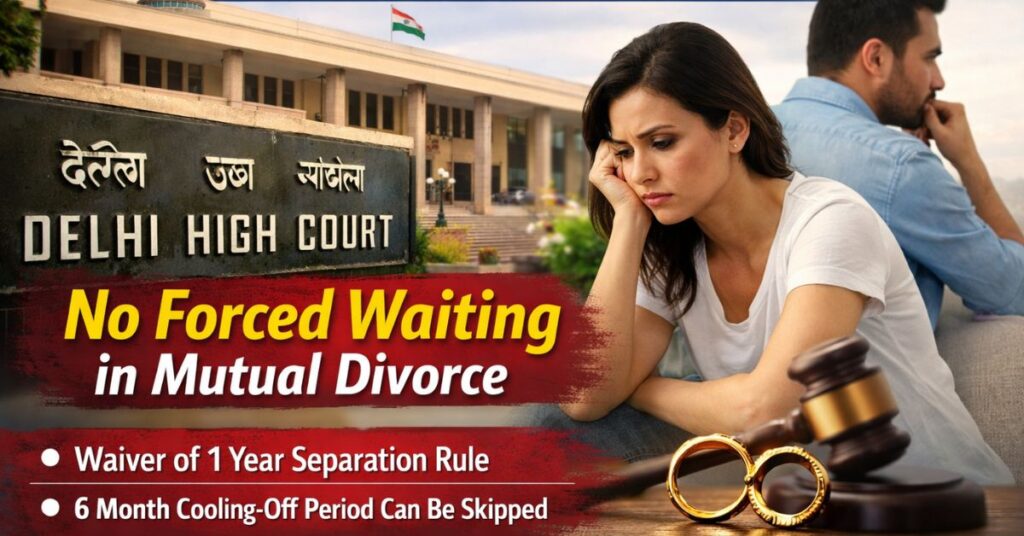Read about the recent High Court judgment in the case of Shivani Yadav vs. Amit Yadav, where the Court allowed mutual divorce before one year of marriage. Discover the exceptional circumstances considered by the Court and the significance of this decision in promoting a more flexible approach to divorce proceedings.
Introduction
In a recent judgment, the High Court of Punjab and Haryana addressed a case involving Shivani Yadav and Amit Yadav seeking dissolution of their marriage by way of mutual consent. The Principal Judge of the Family Court, Gurugram, had dismissed their petition under Section 13-B of the Hindu Marriage Act, citing the mandatory one-year waiting period. However, the High Court overturned this decision, allowing the couple to obtain a decree of divorce based on exceptional circumstances.
Summary
The High Court judgment pertains to a case where Shivani Yadav and Amit Yadav, married in February 2021, faced irreconcilable differences shortly after their wedding. They filed a joint petition seeking divorce by mutual consent under Section 13-B of the Hindu Marriage Act. Alongside the petition, they also submitted an application to waive the one-year waiting period prescribed under Section 14 of the Act.
The Family Court in Gurugram denied both the application and the petition, emphasizing the requirement of the one-year waiting period. However, the High Court examined the exceptional circumstances of the case, considering the young age of the parties involved, the short duration of their marriage, and the fact that they had already been living separately since February 2021.
Based on these factors, the High Court allowed the application to waive the one-year waiting period. Both Shivani Yadav and Amit Yadav appeared before the Court and confirmed their mutual agreement to obtain a divorce. Considering the compliance with the requirements of Section 13-B and the prevailing COVID-19 situation, the Court granted them a decree of divorce by mutual consent.

Significance
This judgment holds significance as it demonstrates that the High Court, under exceptional circumstances, can waive the mandatory one-year waiting period for divorce by mutual consent. It takes into account factors such as the age of the parties, the duration of the marriage, and their willingness to dissolve the marriage amicably. This decision provides guidance for future cases involving the reduction or condonation of the waiting period, promoting a more flexible approach to divorce proceedings.
Conclusion
The High Court’s decision in the case of Shivani Yadav vs. Amit Yadav highlights the Court’s power to waive the one-year waiting period for divorce by mutual consent under exceptional circumstances. By considering the unique aspects of the case, the Court ensured that the parties’ interests were protected while providing a swift resolution to their marital disputes. This judgment sets a precedent for similar cases and emphasizes the importance of considering individual circumstances in family law matters.




